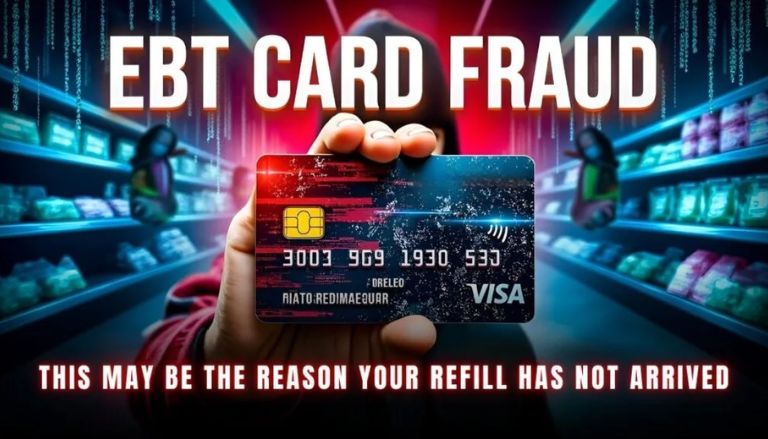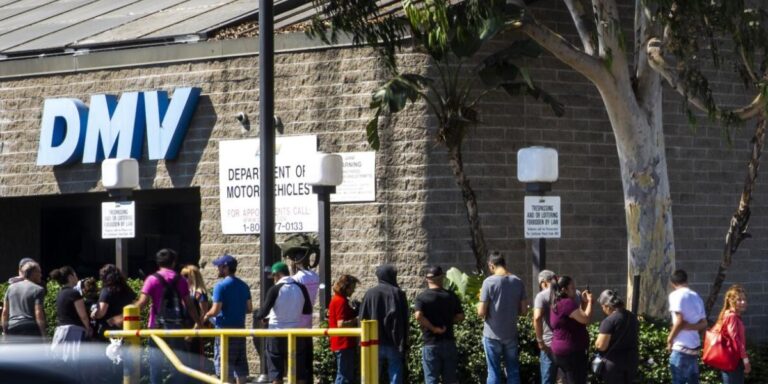In the United States, many vulnerable citizens depend on government assistance programs for food, housing, and other necessities. One of the most common methods for delivering aid is through the Electronic Benefits Transfer (EBT) card. This card serves as a lifeline for millions, but with its widespread use, issues surrounding fraud and delayed payments have become increasingly prevalent.
The Rise of EBT Card Fraud
Beneficiaries often rely on their EBT card to access crucial aid, but problems arise when funds are delayed or fail to appear on the card as expected. This delay can trigger suspicions of fraud, leading many to assume that their benefits have been stolen. With benefit theft becoming a regular occurrence, the EBT card system has drawn the attention from fraudsters, making it a hotbed for criminal activity.
If you suspect that your benefits have been stolen, it’s essential to review your transaction history to identify any unauthorized activity. If you notice discrepancies, immediately change your PIN and report the issue to your local food stamp office. Although these incidents are serious, it’s also important to understand that not every delay or issue is the result of fraud.
Why Your EBT Balance Might Not Be Updated
There are a number of reasons why benefits might not be loaded onto your EBT card as expected. One of the most common causes is the occurrence of a weekend or holiday. Federal and state financial systems are often closed during these times, causing a delay in the processing of payments. If this happens, beneficiaries need not worry—the funds will typically appear on the following business day.
Another reason for delays could be state-specific distribution timelines or changes in how benefits are allocated. The criteria for distributing benefits may differ from state to state, which could affect the timing of your payments.
It’s also important to note that to keep your EBT card active, it must be used at least once every nine months. If it remains inactive for a long period, it may be suspended. Always keep track of your usage to avoid any unnecessary interruptions in your benefits.
Recertifications and Processing Delays
Recertifications play an important role in ensuring that beneficiaries remain eligible for assistance programs. These recertifications have strict deadlines, and failure to meet them can result in a temporary suspension of benefits. Additionally, application processing delays are not uncommon, often due to issues within government agencies that are beyond the control of the beneficiaries.
In the event of processing delays, the relevant government office is responsible for notifying beneficiaries through email or regular mail, detailing the new expected payment date.
SNAP Benefits and Changes for 2025
The Supplemental Nutrition Assistance Program (SNAP), which operates through the EBT card, has seen adjustments to its budget and benefits for 2025. Changes to the income eligibility requirements, deductions, and maximum allotments are made annually by the USDA Food and Nutrition Service (FNS) to ensure that beneficiaries receive the necessary aid to maintain a minimal quality of living.
For the 2025 fiscal year, several changes are worth noting. Most states and territories will see an increase in the maximum allotments for SNAP benefits. On October 1, 2024, the cost-of-living adjustments (COLA) went into effect, raising the allotments for many households.
However, some states will see a decrease in their allotments. For example, in Hawaii, the maximum allowance for a family of four will decrease to $1,723, while in the 48 contiguous states and Washington, D.C., the amount will remain at $975. In Alaska, the maximum allotment for a family of four ranges from $1,258 to $1,953, while in Guam and the U.S. Virgin Islands, families of four will receive $1,437 and $1,254, respectively.
These adjustments reflect the federal government’s commitment to ensuring that beneficiaries receive enough aid to cover the cost of living, though it’s important to stay informed about any changes to ensure you’re receiving the correct amount.
What Beneficiaries Should Do
If you’re a recipient of SNAP or other government benefits, it’s vital to keep track of your transaction history, be aware of payment delays, and stay on top of recertification deadlines. While fraud and payment issues can be frustrating, understanding the reasons behind them can help alleviate some of the confusion and stress.
If you encounter delays or discrepancies, don’t hesitate to contact your local office for assistance. And remember, if you suspect fraud, take immediate action by changing your PIN and reporting the theft.
For more information on recertification deadlines and the 2025 SNAP benefits changes, you can visit the USDA Food and Nutrition Service (FNS) or your state’s relevant agency website.
By staying informed and proactive, you can ensure that your benefits continue to support you and your family without unnecessary disruptions.
Key Links:







Leave a Comment